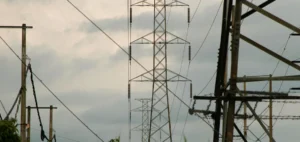Japanese conglomerate Hitachi on Thursday reported slightly higher results for its fiscal year 2022/23 ended in late March, benefiting in particular from positive currency effects and one-time gains on asset disposals, and announced a share buyback.
Net profit of 4.4 billion euros
For the past fiscal year, Hitachi posted a net profit of 649.1 billion yen (4.4 billion euros), up 11% year-on-year, and an adjusted operating profit of 748.1 billion yen (+1.3%). Its results, with revenues up 6% year-on-year, were notably boosted by the fall in the yen and boosted by its 2021 acquisition of US software developer GlobalLogic.
Hitachi said in a statement that it was affected in the fourth quarter by the shortage of semiconductors, mainly in its Hitachi Astemo segment (automotive equipment), as well as by the soaring costs of certain materials.
The group expects lower results for 2023/24
The group is increasingly repositioning itself in digital systems and services for industry, a fast-growing market, and is also very present in energy, rail and automotive equipment. At the end of the fiscal year, Hitachi finalized the sale of its shares in Hitachi Transport System (logistics), following the sale of Hitachi Metals (steel), and half of its shares in Hitachi Construction Machinery (construction equipment).
For the fiscal year 2023/24, which started on April 1, it expects lower results due to these asset disposals, with sales of 8,800 billion yen (-19% year-on-year). Hitachi expects a net profit of 500 billion yen (3.4 billion euros, -23% year-on-year) and an adjusted operating profit of 675 billion yen, down 10% year-on-year. The group specifies that these forecasts are based on the assumption that its acquisition of the rail signalling activities of French company Thales will be completed by the end of 2023. The conglomerate also announced on Thursday a repurchase of its own shares from Friday until the end of March 2024, for a maximum amount of 100 billion yen (676 million euros). It plans to pay annual dividends of 145 yen per share.






















